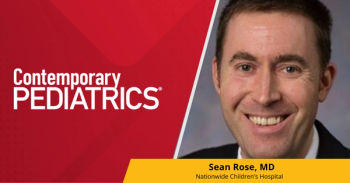
Getting our story straight about MRSA
This editorial discusses what is relevant and what is not-in the prevention of MRSA.
Key Points
From time to time, the public is confronted with information that causes fear and confusion. Recent examples include publicity about possible bioterrorism threats, a possible link between immunizations and autism, and, during the past several months, the alarm raised by the rapid emergence of community-associated methicillin-resistant Staphylococcus aureus.
Public concern regarding each of these three examples has led to long and difficult conversations between parents and pediatricians, a need for physician education concerning the possible threat, and accusations that too little is being done to protect children. What's different about the MRSA alert is that it isn't speculative-it's real, it's immediate, and it's affecting previously healthy children in communities and schools all across the country. By far the majority of the affected children suffer only mild skin and soft tissue infection. But both newspapers and medical journals provide evidence that destructive infection, need for prolonged medical care, and even death sometimes result.
The challenge, for pediatricians and public health officers, is to acknowledge the legitimacy of concern on the part of parents and school officials while at the same time adding a dose of realism to their alarm, and providing advice about effective measures for prevention.
Finally-and this is where our credibility really suffers-it's difficult to comprehend that the most effective weapon against this emerging threat to child health isn't a new and more powerful antibiotic, and it isn't cleaning and sterilizing classrooms. It's hand washing!
The primary explanation for the emergence of virulent and resistant S aureus undoubtedly is related to the pressures of aggressive antibiotic use, both in the hospital and in the community. However, it will not be possible to put this genie back in the bottle simply by being more judicious in our use of antibiotics.
The task for physicians and public heath practitioners is to help parents and school officials understand two important concepts: 1) Prevention of spread of MRSA will be accomplished only if individuals take responsibility; and 2) dirt, loathsome though it may be, is not the villain in this particular war.
What follows is a list of preventive measures to share with your patients:
Editor's Note: A reader's effort to address the MRSA problem provides similar advice in a poem "Superbug," a poem.
Newsletter
Access practical, evidence-based guidance to support better care for our youngest patients. Join our email list for the latest clinical updates.





